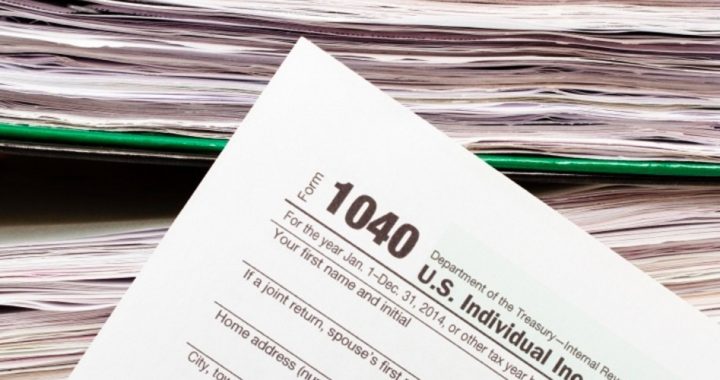
As has become typical in recent years, the tax returns of presidential candidates have once again emerged as an issue. One can hardly forget then-Senate Majority Leader Harry Reid demanding 2012 Republican nominee Mitt Romney release his returns for the past 10 years! According to Reid, Romney had committed some sort of tax fraud. When quizzed on how he could make such an accusation without evidence, Reid suggested the burden of proof was on Romney to prove otherwise by releasing his tax returns going back a decade.
This time, Senator Ted Cruz of Texas, considered along with fellow Senator Marco Rubio of Florida the major competition for frontrunner Donald Trump in the Republican race, has raised the issue with Trump’s taxes.
Cruz wondered out loud as to just what Trump could be hiding. Among the possibilities offered by Cruz about Trump are any connections the New York billionaire may have had with the Mafia in his construction business, and any donations he may have made to the pro-abortion Planned Parenthood (which Trump has called a “wonderful organization”).
This comes on the heels of Mitt Romney’s assertions last week that Trump’s returns could include a “bombshell.”
“At every debate, it seems, he praises Planned Parenthood,” Cruz said, suggesting the release of Trump’s returns could reveal that “he’s written them a bunch of checks.”
The Mafia connections charge could prove even more of a “bombshell,” to use Romney’s words.
“The mob connections of Donald are extraordinarily extensive,” claims Wayne Barrett, who wrote an unfavorable biography, Trump: The Deals and the Downfall, back in 1992. In that unauthorized biography, he asserted that Trump’s life “intertwines with the underworld.”
David Marcus wrote in an article in The Federalist that Trump bought property in Atlantic City which his Trump Plaza casino eventually occupied, for double the market price, from Salvatore Test, a Mafia figure from Philadelphia. The casino was then built by two construction companies controlled by Philadelphia mobsters, including “Little Nicky” Scarfo and his nephew, “Crazy Phil” Leoneti, according to a 1986 report on organized crime written by the state of New Jersey.
Apparently, Cruz is insinuating that if Trump released his tax returns, these alleged Mafia ties would be documented. “Primary voters deserve to know before the nomination because Hillary Clinton will,” Cruz insisted.
Cruz added that Trump’s real estate ventures reportedly have been tied to S&A Construction, a Mafia-connected business “which was owned by Fat Tony Salerno,” a mobster who died in prison in 1992.
Cruz and fellow candidate Marco Rubio have produced the first two pages of their own filing to the IRS. Trump has argued that he cannot release his returns at the moment, because he is presently under an IRS audit. However, the IRS has contradicted this Trump defense, saying that he is free to release his returns to the general public whenever he likes.
Since 1976, every major party candidate has released full copies of their tax returns.
Cruz was also criticized before the Iowa caucuses for failing to give what former Arkansas Governor Mike Huckabee considered a sufficient amount of money to church. “I don’t think you can put God last in your budget if you claim that he’s first in your life,” Huckabee told Bill O’Reilly of Fox News. Opponents of Cruz hint that the Texan’s returns reveal that he has given less than a 10-percent tithe to his church.
It is not surprising that Huckabee was critical of Cruz, because the Texas senator cut deeply into Huckabee’s evangelical base. Cruz won the Iowa caucuses this year, where Huckabee ran first in 2008.
For many conservatives, this release of tax returns by candidates is a difficult issue. While it is good for the voters to know more about those who could potentially serve as president, just how much privacy is a candidate expected to surrender? Serious health issues would seem to be important, considering it was not widely known among the population that Franklin Roosevelt was a dying man when he ran for an unprecedented fourth term in 1944. Yet, was it really all that important for the voters to know that President Jimmy Carter was suffering from hemorrhoids?
This could be another reason for opposition to the federal income tax, in general. After all, as long as an individual is otherwise breaking no laws, why should he or she be forced to give up private information to tax agents from the federal government? Certainly, presidential candidates will be more scrutinized than the average American, but where should the line be drawn?
Ties to known mob bosses, if true, might very well be something the voters should know, but what about the exact amount a candidate gives to his church? After all, in the Sermon on the Mount, Jesus specifically told His disciples that when giving money, “Do not sound a trumpet before thee, as the hypocrites do.” Jesus said that such giving “should be in secret.”
Of course, not sounding a trumpet at their achievements would be pretty difficult for presidential candidates. One could argue that if a candidate is going to selectively announce his accomplishments, he should reveal those things voters might not like as well.
It seems, however, that revealing a candidate’s flaws is generally left to political opponents, who are usually not bashful in pointing them out.



